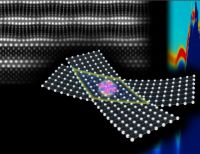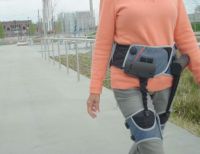COVID-19 patients are often prescribed antiviral drugs that work by reducing the number of viral particles circulating in the body. One such drug, molnupiravir, tricks the virus into generating mutations, some of which are lethal to the virus itself. The mutations eventually overwhelm and destroy the body’s SARS-CoV-2 population.
Since molnupiravir causes the virus to die by inducing mutations, some have raised concerns about the possibility of inadvertently creating new, treatment-resistant versions of the virus. Coronaviruses like SARS-CoV-2 are good at mutating into newer strains like Delta, Omicron, and EG.5. The idea of a drug that helps the virus mutate, even for the purpose of killing it, has some people worried.
A research team that includes Martin Nowak, Harvard professor of mathematics and biology, took a math-based dive into the question of whether molnupiravir could lead to harmful mutations of the virus that causes COVID-19. Nowak’s collaborators were Gabriela Lobinska and Yitzhak Pilpel, both of Israel’s Weizmann Institute of Science, and their work appears this month in the journal PLOS Biology.
They conclude with potential good news: Molnupiravir appears to be “marginally evolutionarily safe.” That is, if used correctly, the treatment reduces the ability of the virus to create surviving mutants.
“We are introducing the concept of evolutionary safety — the idea that giving the drug will leave less mutants than not giving the drug,” said Nowak, who is a leading authority on the mathematics of virus dynamics.
To draw their conclusions, the team constructed a set of mathematical rules that describes the increase and decrease of viral load after infection, and they compared the total amount of original and mutant viruses produced by someone during an infection.
They found that a patient who receives the drug actually makes fewer mutants over time than a patient who does not. Using molnupiravir triggers what scientists refer to as the virus’s error threshold, or the point at which mutations make its survival impossible. Death by mutation is called lethal mutagenesis.
“We propose that, in the future, these types of drugs should be pursued, and their evolutionary safety should be carefully evaluated,” Nowak said. Molnupiravir belongs to a class of drugs called nucleoside analogs, which include drugs that treat HIV.
The researchers propose that a drug with even better ability to cause lethal mutagenesis might be more evolutionarily safe than molnupiravir is now.
Their work also finds that molnupiravir appears to be more effective for those with difficulty clearing the virus on their own. It may be less evolutionarily safe to give it to people who can clear the virus quickly. But for those healthier patients, the total number of mutants stays low in any case.
The Daily Gazette
Sign up for daily emails to get the latest Harvard news.















